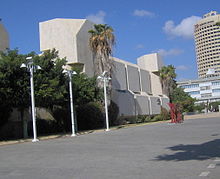Introduction to Library and Information Science
Library and Information Science (LIS) is the academic and professional study of how information and information carriers are produced, disseminated, discovered, evaluated, selected, acquired, used, organized, maintained, and managed. This book intends to introduce the reader to fundamental concerns and emerging conversations in the field of library and information science.

A secondary goal of this book is to introduce readers to prominent writers, articles, and books within the field of library science. The book originated as a collection of annotations of important LIS articles. Though these citations are being developed into a fuller text, we hope that this book remains firmly rooted in the literature of LIS and related fields, and helps direct readers toward important resources when a particular topic strikes their fancy.
This book is primarily intended to support introductory courses in graduate-level LIS programs, but it can also be used in Library Technician programs. When complete, this text will be aligned with the Foundations of library services competency set from the ALA-APA Library Support Staff Certification. Laypeople interested in the practical and theoretical considerations that information workers face will also enjoy this book.
If you want to get involved, or notice something in this book that you would like to add, you are encouraged to edit boldly. If you need ideas of how to start, check out our To Do List.

Chapters
- Contextualizing Libraries: Their History and Place in the Wider Information Infrastructure
- Ethics and Values in the Information Professions
- Information Policy
- Information Organization
- Information Seeking
- Re-contextualizing Libraries: Considering Libraries within Their Communities
- Technology and Libraries: Impacts and Implications
- Library Cooperation
- Transcending Boundaries: Global Issues and Trends
- Learning More: Free LIS Resources
About this book
- List of Contributors
- LSSC alignment
- Local Style Guide
- Want to get involved? Please visit our To Do List to find something you can do to help make this book better!
| Permission is granted to copy, distribute and/or modify this document under the terms of the GNU Free Documentation License, Version 1.2 or any later version published by the Free Software Foundation; with no Invariant Sections, no Front-Cover Texts, and no Back-Cover Texts. A copy of the license is included in the section entitled "GNU Free Documentation License." |